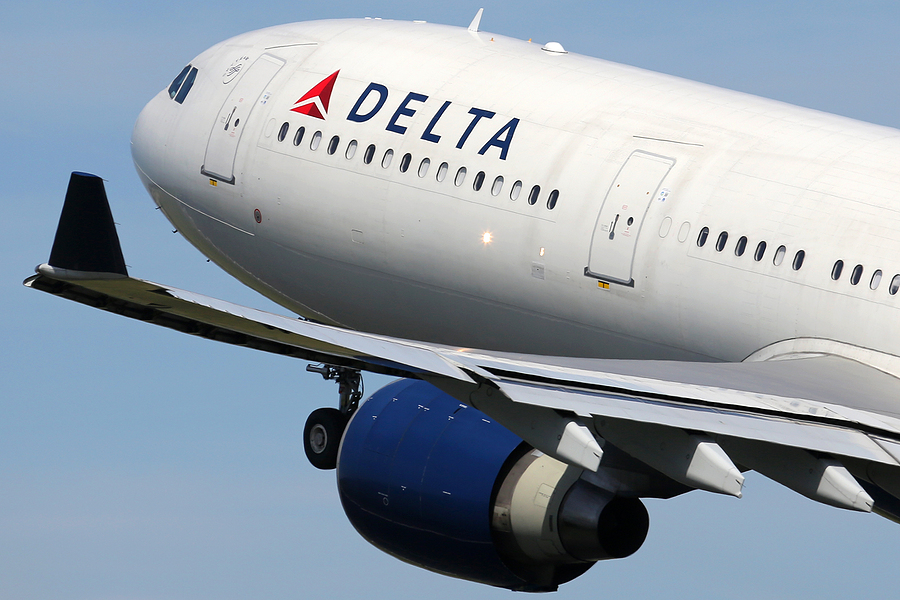Despite the International Air Transport Association’s projection of record-high volumes for passenger air travel in 2025, the airline industry remains plagued by a reduction in consumer confidence as a result of ongoing safety and service issues.
Who among us has not heard complaints about boarding delays due to infrastructure failures? As flying feels riskier and customers are less satisfied, it’s clear that those who say they care the most about customer experience are not making investments in that experience. This is a flashing red light that requires immediate attention from our elected representatives in Congress via hearings and investigations.
A standout among the major U.S. carriers, Delta Airlines has become a poster child for shoddy technology systems, questionable safety standards, and poor treatment of its workforce. Delta nonetheless pays CEO Ed Bastian more than any other industry executive, including an eye-popping $34 million in total compensation for 2023.
While Bastian makes headlines for optimistic financial claims and his lofty pay, Delta has also repeatedly made headline news recently due to poor safety practices. Many of those incidents may have been avoided with proper investment in infrastructure, processes, and people. Bastian can’t distract from the disparity between his massive pay and failing leadership, no matter how many self-congratulatory videos he appears in.
Last month, the crash and overturn of a Delta CRJ900 twin-jet aircraft at Toronto Pearson Airport rocked air travelers. If that wasn’t worrying enough, Delta’s 2025 report card also includes multiple incidents of flights being diverted due to ‘smoky odors,’ engine failure, and a midair near-collision with a United flight in the Phoenix area. Thus far, Bastian and Delta have failed to provide customers and the public with an update on the root cause of these issues.
It appears lagging technology and systems may be part of the root causes of these safety issues. In July 2024, Delta struggled to recover from a broad IT outage that its peers were able to quickly bounce back from within 24 hours. Delta spent more than 48 hours repairing its system, resulting in thousands of flight cancellations and unprecedented travel disruptions.
While other airlines became operational again in July 2024, Delta instead struggled to reboot systems and apparently rejected outside assistance from cybersecurity leader CrowdStrike. Delta subsequently claimed it suffered $500 million in damages due to the outage. But why wasn’t the airline already taking action to invest in infrastructure to prevent those types of issues? Certainly, Delta could have afforded to invest more in technology, given its operating income of $6 billion in 2024.
Reports suggest Delta’s evident stinginess extends beyond outdated and inefficient technology infrastructure. Notably, Delta employs fewer flight schedulers compared to peers. In an industry where real-time data is crucial to keeping customers safe, this underinvestment is ill-advised and further demonstrates leadership’s misaligned priorities.
Further, Delta has tarnished its relationship with the airline’s core asset: human capital. Flight crews and employees are tasked with keeping passengers safe and the airline running smoothly. However, frontline personnel have not received reciprocal support from leadership, as evidenced by attempts to quash union representation, allowing harassment of flight attendants, and even outsourcing pilot jobs. These problems have direct consequences for customers and shareholders alike. Delta faces ongoing, costly litigation relating to both airline incidents experienced by passengers and Delta’s failure of fair pay practices.
Delta is certainly not alone in these issues. American Airlines and United Airlines have also noted an expected softening in consumer demand for the year ahead. While Delta stands alone as an airline that points fingers rather than investing in infrastructure, the other major U.S. carriers have also experienced flight delays due to technical issues and growing safety concerns.
Instead of making massive pay packages, Delta could be focused on making sure it never has another $500 million mistake again. Bastian and the board should think critically about the source of these issues, namely the lack of investment in their critical infrastructure and ensuring that their people and their customers are supported.
On behalf of the nearly 5.2 billion passengers who are expected to fly in 2025, Congress should act quickly with a thorough investigation to head off more issues in our skies, before a lack of consumer confidence in our airlines becomes a financial risk factor. CEOs like Bastian, who will never be worth their exorbitant salaries, need accountability now.


